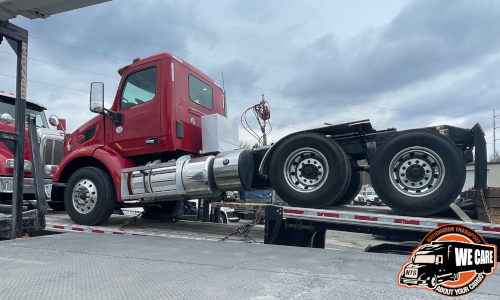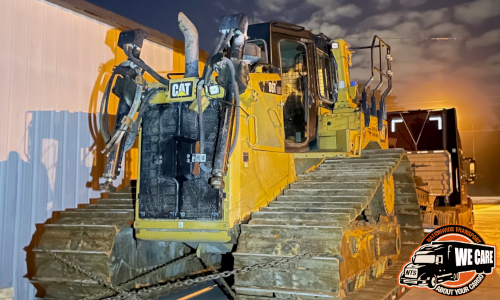What is California’s AB5 Law and What Does It Mean For Independent Truckers?
As an established third-party trucking broker, Nationwide Transport Services has worked with several stakeholders to understand the impact of state laws on the heavy and oversized equipment shipping industry. While some laws may not have a significant effect, others, like California’s AB5 Law, have profoundly affected the sector, especially independent truckers and trucking companies.

What is California’s AB5 Law?
The Assembly Bill 5 Law, shortened as AB5 Law, was signed into law by Governor Gavin Newson and took effect in September 2019. The law restricts employers’ ability to classify workers as contractors instead of employees, especially independent truckers.
This California legislation was championed by labor unions and replaced the standard model of classifying workers. The AB5 Law presents a new three-point ABC test that presumes a worker is employed unless specific criteria are met.
The ABC test criteria entail that the worker:
- Is not in the control and direction of the hiring company when executing their work
- Is performing duties or tasks outside the usual course of hiring company’s business
- Is customarily engaged in established trade, business, or occupation of the exact nature as the duty or task performed
According to the Assembly Bil 5 Law, the shipping or transport company must show or prove that the hired contractor’s role was outside of its normal business operations and function. This leaves an open avenue for independent truckers to claim to be employees of the hiring company and sue for benefits and wages.
Generally, the bill was introduced to safeguard gig workers from misclassification and give them the same rights and benefits the company’s regular employees enjoy. While many other states have the ABC test, they only deny independent trucker contractor status, where workers work regularly in the exact location.
California’s AB5 Law has been a subject of heated debate with a series of court cases. However, a Federal injunction exempting transport and shipping companies from the law was lifted when the United States Supreme Court declined to hear the case.

What Does the AB5 Law Mean for Independent Truckers Going Forward?
The shipping industry is one of the fields significantly impacted by California’s AB5 Law. Most independent truckers initially classified as owner-operators faced the risk of being reclassified as employees.
The transport or trucking industry, including independent truckers associations, has actively advocated for their concerns regarding the effects of Assembly Bill 5, mainly on the independence and flexibility of owner-operators.
However, further revisions and amendments to the AB5 Law have been discussed to accommodate and address specific challenges and concerns faced by different industries, mainly independent truckers.
For the independent trucker, California’s AB5 Law may continue to evolve through sustained court challenges and decisions, legislative amendments, and other new laws that could affect worker classification.
This also means that there will be continued advocacy efforts to influence regulations and legislation for independent truckers and the transport and shipping industry. Still, based on reclassifying independent contractors as employees means that the shipping company has to:
- Pay employment taxes
- Provide health insurance
- Pay minimum wage
- Provide paid time off
- Pay drivers overtime for more than 40 hours per week
- Contract for worker’s compensation benefits
Does AB5 Include Trucking Companies?
The introduction of Assembly Bill 5 in California significantly affects trucking companies, specifically the classification of workers. Initially, the law was intended to require or compel ride-hailing companies such as Uber to classify their drivers as employees.
However, the scope of this law extends beyond this field, changing the classification of workers in several trucking and logistics companies in California. For trucking companies, the crux of this law lies in the ABC test criteria.
Where previously, the trucking, shipping, and transportation companies applied the contract owner-operators model in California, they would now have to treat them as employees. Under this law, trucking companies employing owner-operators as workers must provide or give them the same protections, benefits, and rights as any other employee in California.
This exposes trucking companies to lawsuits for compensation from independent truckers. Under AB5, the shipping companies’ independent operators are considered workers unless the duties or tasks are part of the Assembly Bill exemptions, or the business meets the established ABC test criteria.